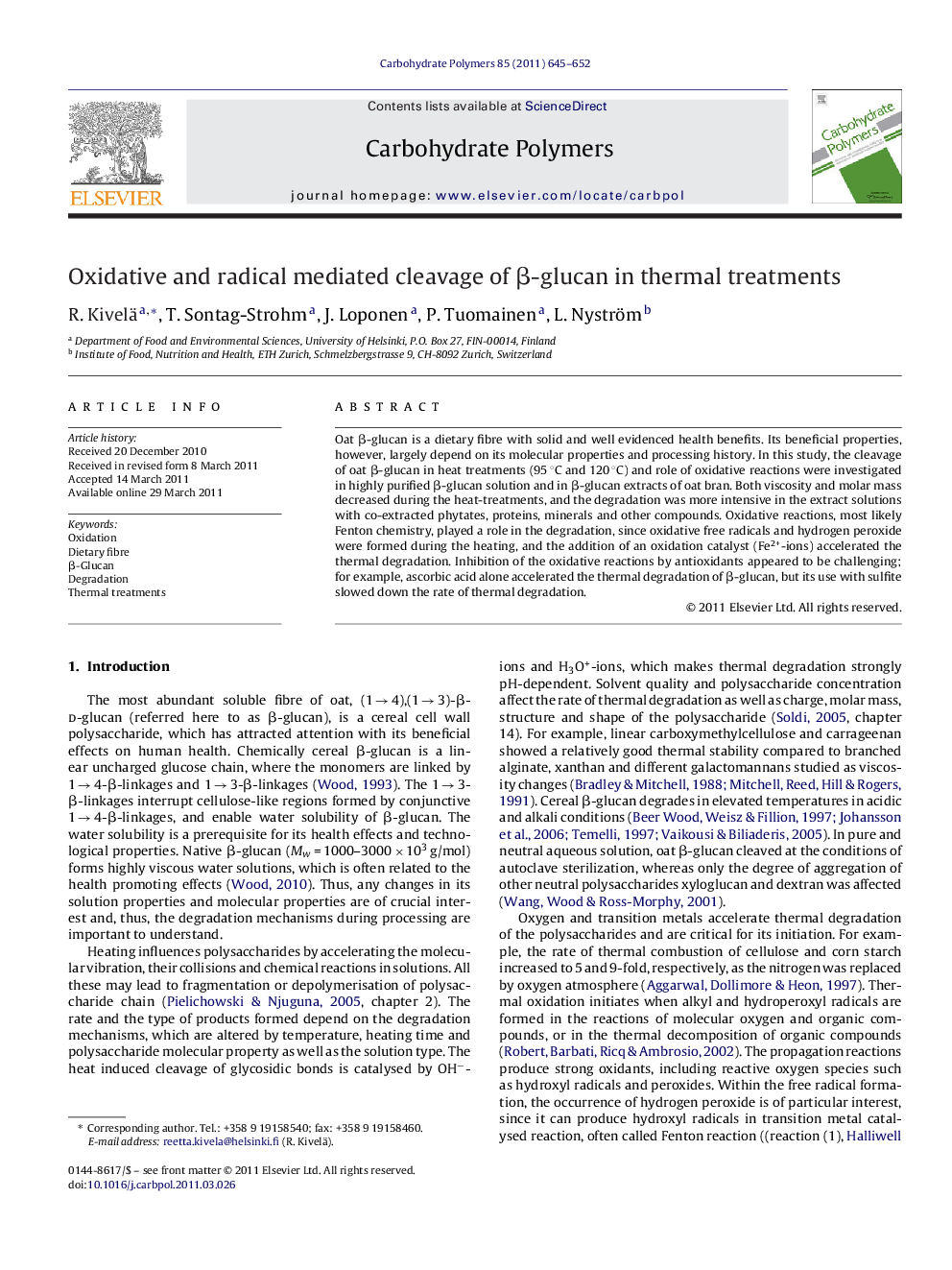| Article ID | Journal | Published Year | Pages | File Type |
|---|---|---|---|---|
| 10602338 | Carbohydrate Polymers | 2011 | 8 Pages |
Abstract
Oat β-glucan is a dietary fibre with solid and well evidenced health benefits. Its beneficial properties, however, largely depend on its molecular properties and processing history. In this study, the cleavage of oat β-glucan in heat treatments (95 °C and 120 °C) and role of oxidative reactions were investigated in highly purified β-glucan solution and in β-glucan extracts of oat bran. Both viscosity and molar mass decreased during the heat-treatments, and the degradation was more intensive in the extract solutions with co-extracted phytates, proteins, minerals and other compounds. Oxidative reactions, most likely Fenton chemistry, played a role in the degradation, since oxidative free radicals and hydrogen peroxide were formed during the heating, and the addition of an oxidation catalyst (Fe2+-ions) accelerated the thermal degradation. Inhibition of the oxidative reactions by antioxidants appeared to be challenging; for example, ascorbic acid alone accelerated the thermal degradation of β-glucan, but its use with sulfite slowed down the rate of thermal degradation.
Related Topics
Physical Sciences and Engineering
Chemistry
Organic Chemistry
Authors
R. Kivelä, T. Sontag-Strohm, J. Loponen, P. Tuomainen, L. Nyström,
